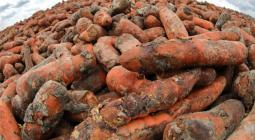Tesco partners with WWF to halve the environmental impact of food production.

Tesco is working with the WWF to halve the environmental impact of its food production.
Earlier this week, the retailer announced that it will become the first in the UK to set a sales target for plant-based alternatives.
In collaboration with the WWF, Tesco is setting sustainability measures – one of which is a 300 percent increase in its sales of meat alternatives by 2025.
The aim is to halve the environmental impact of the average UK shopping basket.
Tesco aims to introduce and grow plant-based meat alternatives across all its stores, with products across 20 different categories including ready meals, breaded meat alternatives, plat-based sausages, burgers, etc.
In order to make these projects more affordable, the retailer will invest in the value of the products so that affordability “is not a barrier to buying plant-based meat alternatives,” said Tesco.
Tesco has also committed to publishing the yearly sales of plant-based proteins as a percentage of overall protein sales to track its progress. In 2013, Tesco became the first UK retailer to publish its food waste data. Now it hopes that this new level of transparency on protein sales will help encourage the rest of the food industry to make similar commitments.
“We can’t accomplish the transformational change needed for a truly sustainable food system on our own, so we’re calling on the whole industry to play its role, starting with increased transparency on its sustainability impacts,” said Tesco CEO, Dave Lewis.
Tesco is also calling on the government to “help scale up innovations and create a level playing field to ensure companies drive sustainability in their supply chains,” said Lewis.
In 2019 Tesco and WWF launched the Sustainable Basket Metric. In the last year, the retailer has achieved 11 percent of its target to halve the environmental impact of the average shopping basket. The Metric “measures environmental impacts of food across seven categories: climate change; deforestation; sustainable diets; sustainable agriculture; marine sustainability; food waste; and packaging waste,” says Tesco.
Other initiatives include working to ensure all wild fish is sourced sustainably and reducing emissions in existing supply chains.
1 October 2020
Climate Action



